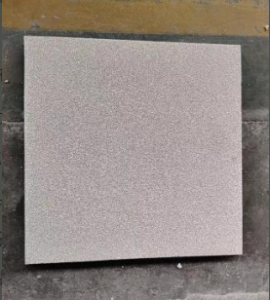Successful trial production of phosphorus-free ceramic foam filter online
Alumina-based ceramic foam filter plates for filtering and purifying molten aluminum occupy the mainstream market. They use phosphate as a high-temperature binder, which can meet the general requirements for the purification and filtration of molten aluminum. Hidden dangers of corrosion and environmental pollution. The magnesium element in high-magnesium aluminum alloy reacts with aluminum phosphate at 600-800°C, destroying the high-temperature binder of the ceramic filter plate and destroying the structure of the ceramic filter plate. In severe cases, the filter plate will be damaged. The pieces fall off, contaminate the aluminum liquid, and produce magnesium phosphide and aluminum phosphide at the same time, which will undergo a hydrolysis reaction when exposed to moisture or water in the air, releasing toxic and flammable phosphine gas, and polluting the environment. Due to the high thermal expansion coefficient and large elastic modulus of alumina, the thermal stress is large during rapid preheating, and cracks are prone to occur, resulting in “slab collapse” during use, resulting in casting interruption or product slag inclusion.
In view of the above situation, after years of research, Adtech has successfully developed a new type of corrosion-resistant and environmentally friendly foam ceramic filter plate that does not contain phosphorus(Phosphorus-free ceramic foam filter), using boron salt as a high-temperature binder to avoid corrosion of magnesium elements in the alloy, and at the same time adopts anti-corrosion filter plates with low expansion coefficients. Aggregate, avoiding the erosion of aluminum and magnesium, greatly reducing the thermal stress generated during rapid preheating, and has high thermal shock resistance. Recently, a small production test has been successfully completed. The product has high compressive strength at room temperature (1.2MPa), high flexural strength at room temperature (0.8MPa), and good thermal shock resistance, which can meet the filtration and purification needs of high-magnesium aluminum alloys.

